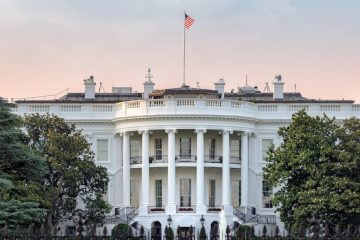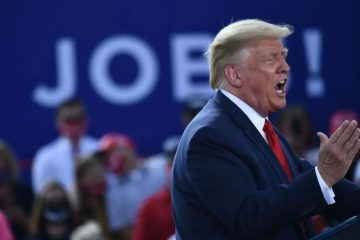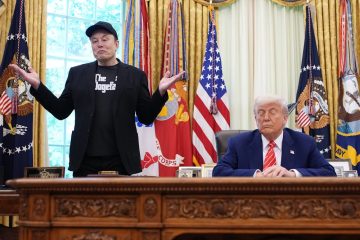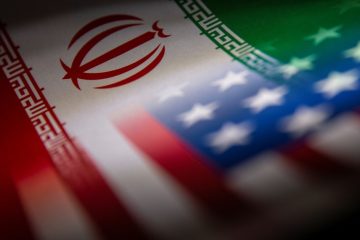An international presidential debate
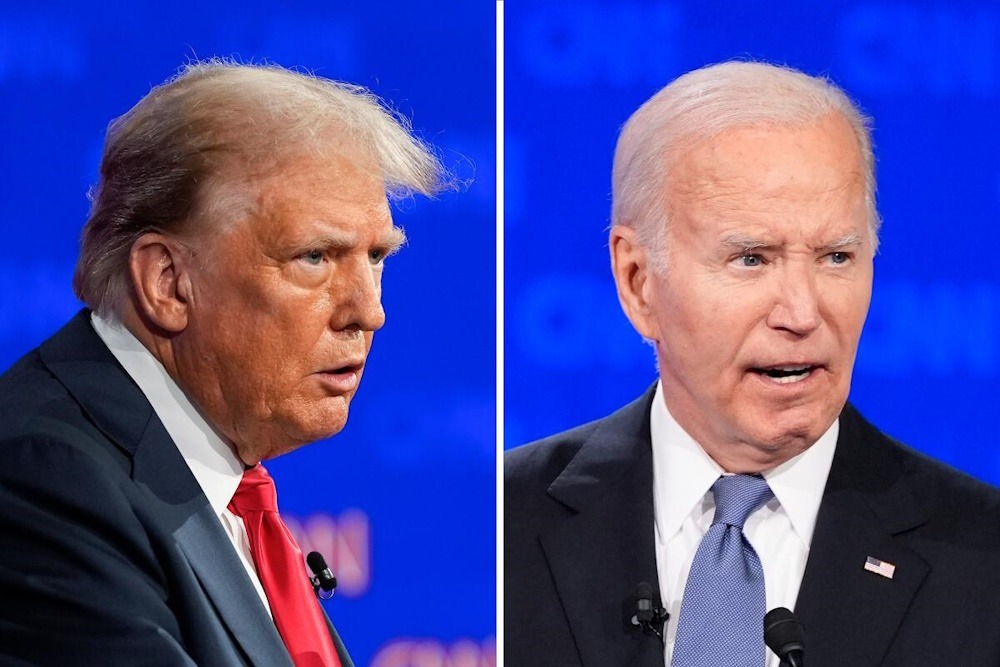
Amidst the impact of Thursday’s presidential debate on American politics, the majority of attention was directed towards President Biden’s deteriorating performance. However, there is an additional aspect to the narrative. The debate brought foreign policy to the forefront of the presidential contest, while intensifying global politics and heightening the likelihood of other international crises as the U.S. election draws near.
American presidential debates generally focus on domestic matters such as fiscal policy and cultural conflicts, but last week’s discussion was an anomaly. Donald Trump has recognized that foreign policy is a significant vulnerability of the Biden administration, and he consistently emphasized a topic that he feels will be advantageous for him.
Internationally, our country has lost its reputation and is no longer held in high regard. They lack reverence for our leadership. “The United States is no longer respected,” stated Mr. Trump. He reiterated this point multiple times during Thursday’s debate. He claimed that if there was a genuine president who commanded respect from Vladimir Putin, Ukraine would not have been attacked.
For those who have been attentive, this should not be unexpected. Mr. Trump has been placing significant emphasis on this concept during his campaign. During an event in Racine, Wisconsin on June 18th, he expressed that Joe Biden is causing embarrassment to our nation on the global platform. I shall avert the occurrence of a catastrophic disaster known as World War III. The crowd erupted in applause and sustained their enthusiasm as he proclaimed: “You are in much closer proximity to it than you comprehend.” The vulnerability of Biden has exposed us to significant peril.
Mr. Trump’s rallies have consistently functioned as forums for gathering public opinion. The ex-president presents ideas and thoughts, and when his audience reacts with great enthusiasm, he intensifies his commitment to those ideas. His adherents are deeply receptive to the notion that World War III is imminent and that only a change in leadership will avert it. During a rally in Philadelphia on June 22, he asserted that under Mr. Biden’s leadership, “the world is engulfed in conflagration.” The influx of people crossing our border has beyond our capacity to manage the situation. Europe is experiencing a state of disorder and confusion. There is a significant escalation of conflicts occurring in the Middle East. Iran is displaying increased confidence and assertiveness. China is rapidly advancing. Furthermore, this abhorrent ruler is propelling us towards the brink of a global conflict, sometimes referred to as World War III.
Mr. Biden’s debate performance had a profound impact on the international system. Politico cited a text from a European ambassador, who remarked, “On the international stage, this does not present America in a favorable light, to state the obvious.”
European leaders, who overwhelmingly favor Mr. Biden over his competitor, were further convinced of their concerns by the president’s hesitant delivery. Mr. Biden’s inconsistent performance in meetings with European and foreign leaders has led to significant worries regarding his capacity to secure re-election or effectively fulfill his presidential responsibilities. Currently, the majority of the Continent is preparing for what European leaders consider to be an almost certain return of Trump to the White House.
Mr. Biden is currently facing both political and personal vulnerability, which coincides with a leadership crisis in Europe. French President Emmanuel Macron is experiencing the aftermath of a significant loss in the initial round of parliamentary elections. German Chancellor Olaf Scholz leads a government that is characterized by its lack of strength, division, and unpopularity. Hungary, led by Viktor Orbán who has shown sympathy towards Putin, has recently taken up the presidency of the European Union for a period of six months. The Conservatives led by Rishi Sunak seem to be on the brink of a resounding defeat in the election taking place on Thursday.
The contrast with a resurgent Russia, where Vladimir Putin appears to have consolidated his domestic political position while enhancing connections with allies such as Iran, China, and North Korea, is unsettling.
While the president’s political allies and advisers grappled with resolving the intense controversy ignited by the debate, Team Biden’s foreign-policy strategists confront an even more intricate challenge. The lackluster performance in the debate erodes trust in both the resilience of the Biden administration and the effectiveness of its leadership. Can Israel or Hamas have confidence in the pledges made by this government, given the likelihood of Donald Trump’s return to office in January? Will China perceive chances within a diminished American government led by an elderly leader who is struggling to maintain their political position?
If the situation becomes really unfavorable, the perception of a lack of strength in the president could prompt foreign leaders to question the authority of the United States during a period when it appears to be susceptible to attack. In 2008, Mr. Putin made the decision to launch an offensive against Georgia during a time when the George W. Bush administration was facing public disapproval and grappling with the financial crisis. In 2024, there is a possibility that either Mr. Putin, Xi Jinping, Kim Jong Un, or Ayatollah Ali Khamenei may seize the opportunity presented by the current state of American political instability to undertake a significant and attention-grabbing action. Multiple entities could collaborate to synchronize their operations, so posing a significant and intricate international challenge to the Biden administration, which is already preoccupied and weakened. This challenge is arguably the most perilous one since the 1940s.
As the Biden administration strives to maintain global tranquility, there is one certainty. Any foreign-policy disasters that occur before November will be prominently highlighted by Mr. Trump in his aggressive attack on President Biden’s suitability for office.

